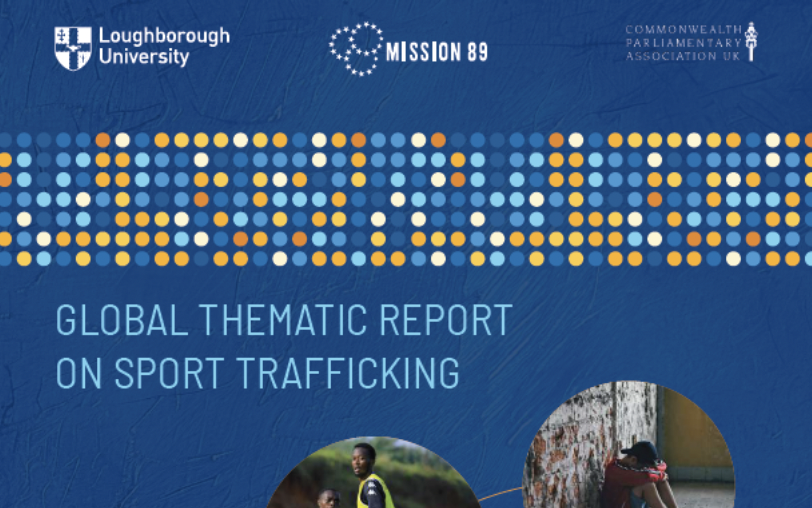January 6 – Following on from the session on sport trafficking held as a side event to the 79th Session of the UN General Assembly Third Committee in New York last November, Mission 89 has released its Global Thematic Report on Sport Trafficking.
It is a key next step in raising the awareness and defining the depth of a major issue facing sports that few in the administration of the game or the player development side of football want to acknowledge or tackle, rather pretending that it is an issue that is not present in their activities and that human trafficking is an issue for
Central to the report is the first meaningful working definition of what constitutes sport trafficking, and its differentiation from the broad ‘human trafficking’ term it too conveniently (for sports bodies in particular) get grouped with.
It is a definition that sharply brings into focus a problem that is front and centre in football but which few within the game are prepared to accept is their problem, preferring to push the issue under a carpet that has become uncomfortably bumpy. It is a cancer at the heart of youth football in the developing world but, as the research finds, it is not confined to those countries only.
The report, in more than 150 pages, chillingly shows how close the every day football scouting and player development business and its recruitment of players (male and female) for overseas markets, is to human trafficking, sex trafficking, labour abuse and, ultimately, an intersection with organised crime.
The working definition to describe sport trafficking is: “The act of recruiting, transporting, transferring, harbouring, or receiving an individual—typically an athlete or aspiring athlete—within or across borders, through coercive, deceptive, or other abusive means for the purpose of exploitation in, through or around sports. Exploitation may manifest as forced labour, sexual exploitation, slavery, servitude within sport-related activities or events. In the case of children, no means need to be present”.
Dr Serhat Yilmaz, the lead researcher of the report and Senior Lecturer in Sports Law at Loughborough University, said. “Without a precise, sport-specific definition of trafficking, we are dealing with inadequate legal protections, ineffective policy development, challenges in identifying and supporting victims, limited prevention strategies, and blurred legal distinctions that allow perpetrators to escape accountability. Therefore, our objective is to bring sport trafficking out of the shadows and into focused, actionable legal and social frameworks.”
The requirement for stronger national and international legislative frameworks to address trafficking is one of the conclusions of the report, but that must come with a political commitment. It also needs sports bodies to step up and recognise that they have a responsibility to proactively be part of the solution.
The report conclusions call for awareness-raising, education, and resource allocation are required to protect vulnerable, at-risk groups of athletes. Pointing the finger directly at sports the report concludes that “interventions are required amongst agents and at the club level to address questions of complicity within the trafficking process”.
“Aligned with United Nations Sustainable Development Goals 8.7 and 16.2, the research provides a foundational scholarly contribution to understanding and mitigating trafficking vulnerabilities”, said Lerina Bright, Executive Director, Mission 89.
“With a clear and specialised definition, we can provide clearer legal frameworks, guide more effective policymaking, improve victim support mechanisms, enable more targeted educational efforts and help the judiciary better recognize and address these specific trafficking cases.”
To see the full report, click here. https://mission89.org/global-thematic-report-on-sport-trafficking-unveils-critical-insights-into-systemic-exploitation/
Contact the writer of this story at moc.l1745697018labto1745697018ofdlr1745697018owedi1745697018sni@n1745697018osloh1745697018cin.l1745697018uap1745697018

